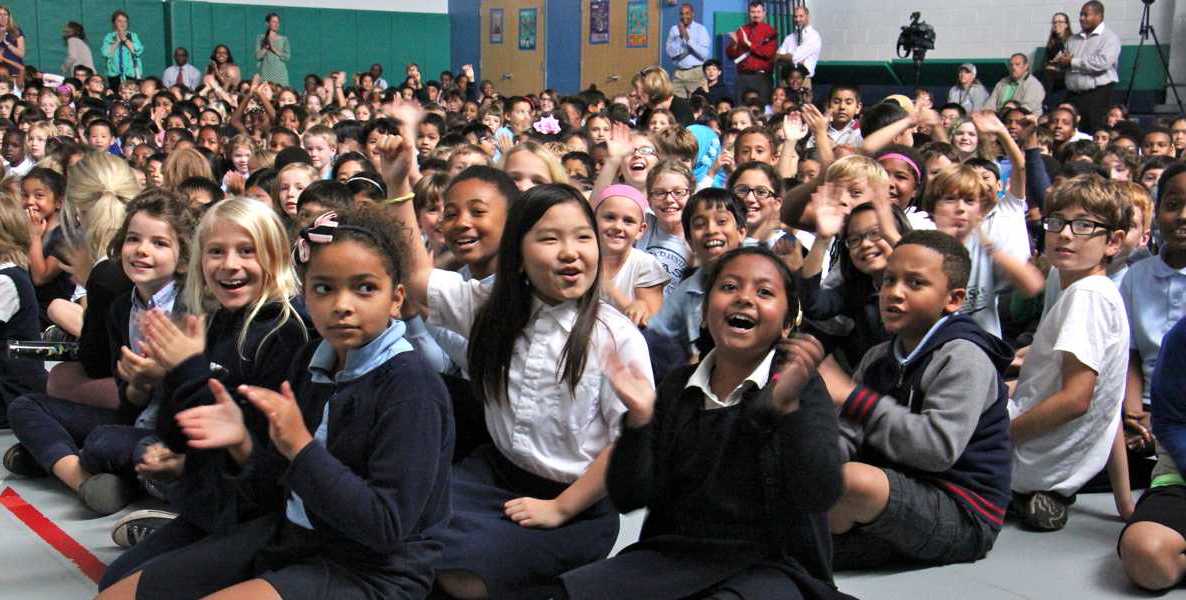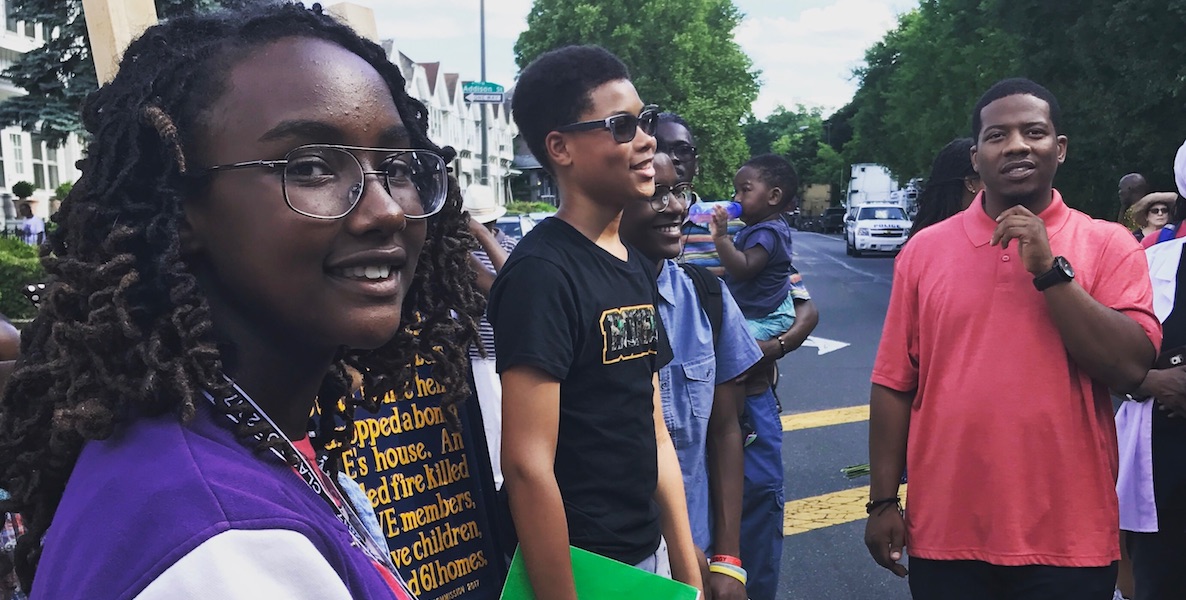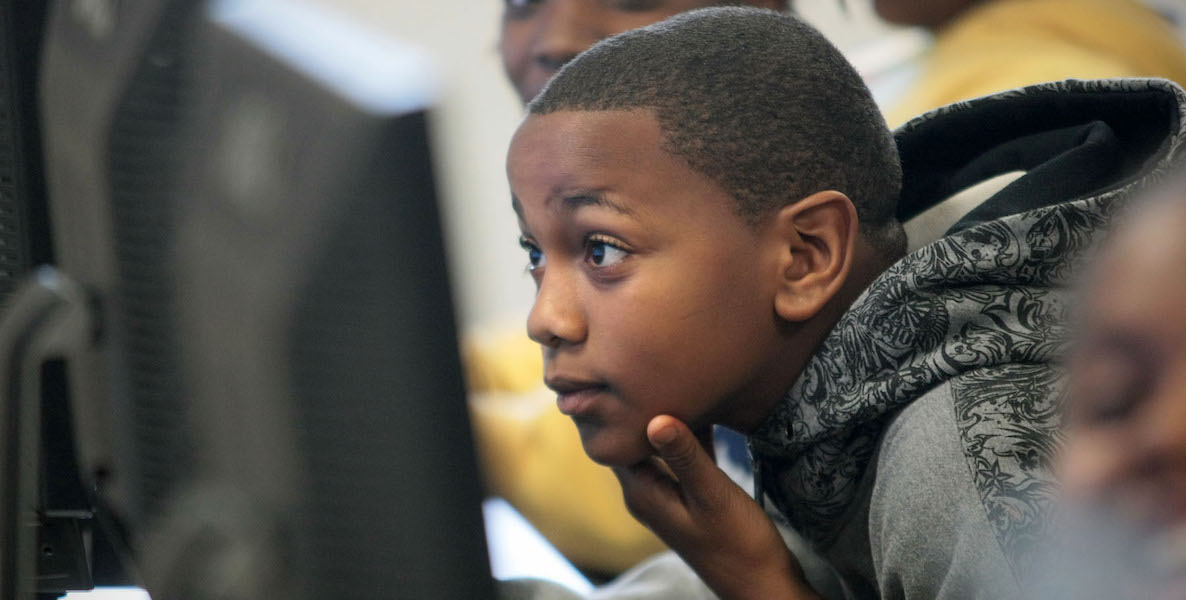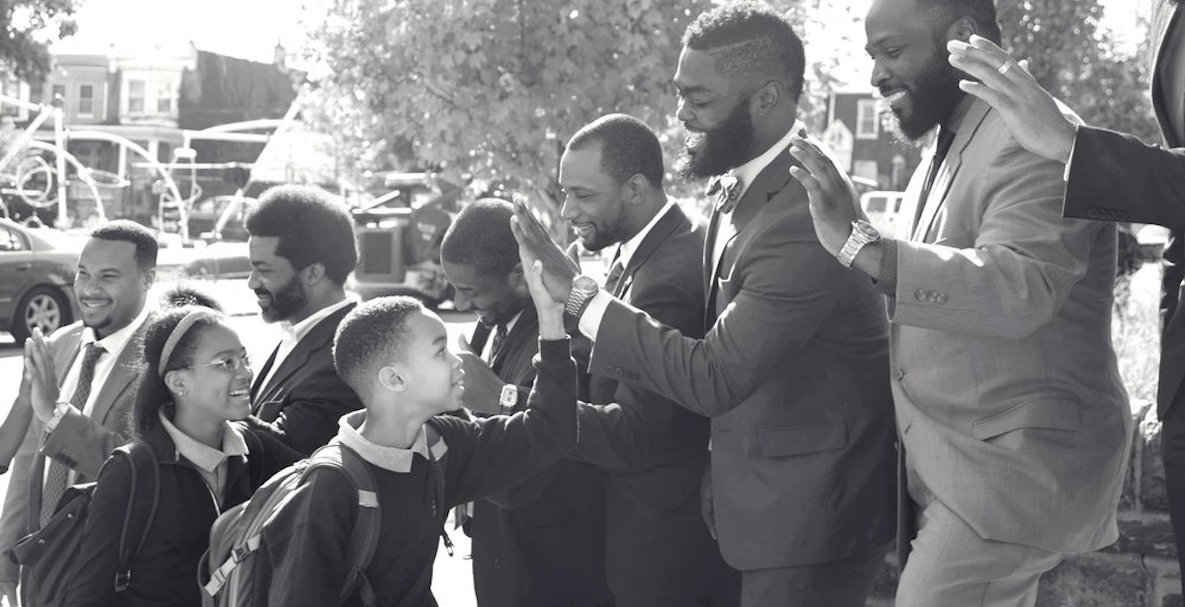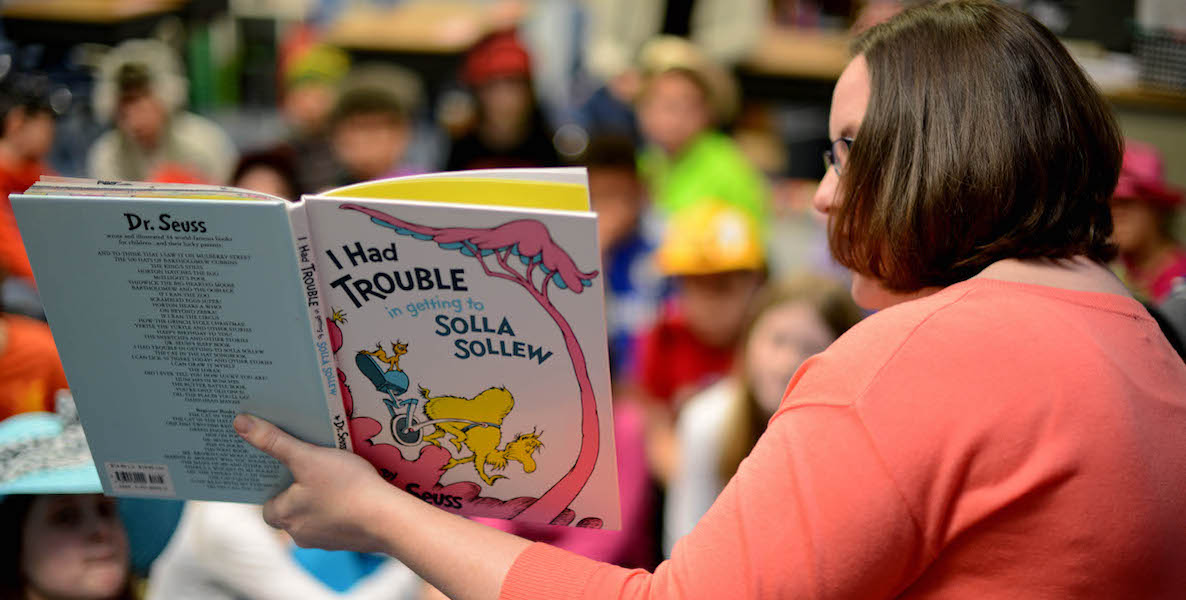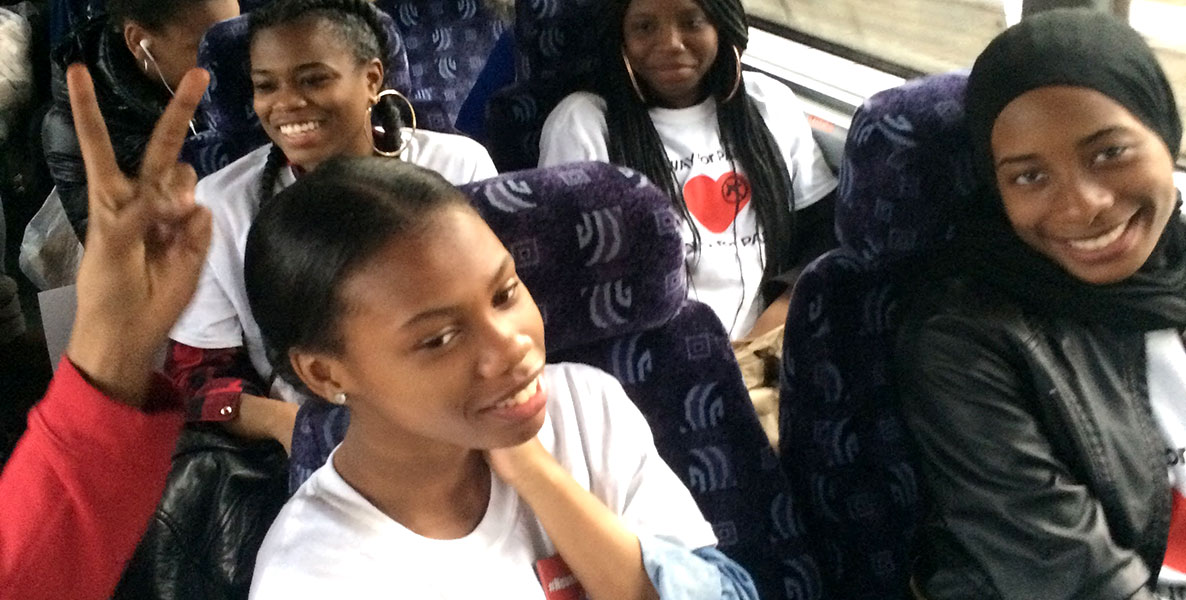Students in my ninth grade class at Parkway Center City Middle College were spellbound by Dena’s voice which rose and swelled and fell, flooding the room in a torrent of insistent rage about the legacy of domestic gun violence in her family. She spoke about a shooting, about paralysis, about death. She spoke about family members who responded to the trauma by numbing themselves. She shared all of this in response to my prompt: “Speak for three minutes about an issue that matters to you.”
As often happens in response to a student like Dena, others immediately sought opportunities for do-overs. After Dena’s go-for-broke truth-telling, Anissa, Kareema, Simone, Nyla and then Zamir, Tariq, and Frank started to share their defining moments in electric ways that make public school teaching utterly worth it, whatever its frustrations. Someone said, “Oh, now I know what I really wanted to say, Ms. Boland!” Someone else said, “I didn’t know we were allowed to do that.”
American children are more engaged, more skilled, and more prepared to take over this country than any I have seen in 20 years of teaching.
This scene repeats itself every year. One student reimagines the possibilities of self-expression, and then the others heed that call and find the means to speak their truths. The Denas of the world, those who are unafraid to reveal deeply personal truths in the service of uplifting others, are classroom-changers. They model the compelling voice I have, historically, struggled to find within myself.
Before Dena’s voice emerged, the 2017–2018 school year was already shaping up to be noteworthy. I don’t know how to explain the difference I’ve been picking up on in students in the last two years except to say that sometimes I feel as if I am in a classroom with one of those filters we use on photos. Students seem sharper, conversations feel more kinetic, questions are more pointed, and answers are more forceful. I argued even as early as October (though mostly to myself ) that if what I am seeing in my school is not an anomaly, then American children are more engaged, more skilled, and more prepared to take over this country than any I have seen in 20 years of teaching.
I’d begun the year talking to my students about devoting ourselves to developing skills they would need to understand and contribute to the important conversations going on in this country. They seem to agree with my thesis about the urgent need for students of color from underserved communities to find ways to be heard in this extremely loud-mouthed version of America. There were many moments before February 14, 2018 when I marveled at powers my students seemed to have in comparison to those that came before them.
And then there was Parkland.
![]()
This time was different from other aftermaths of school shootings. Students, who walk through metal detectors and feel safer at school than they do on the streets, usually feel pretty disconnected from such events. But this time they immediately started asking questions about unguarded doors and spaces in the building that might not be protected during a lockdown. They wondered why we were not having more drills and why everyone seemed to assume it could not happen here. I think their connection to the event was created by the sheer horror of Parkland, their access to the story via social media, and the fact that many had delivered Dena-inspired speeches about their personal exposure to gun violence back in December. More than fifty percent of the students I teach have witnessed a shooting. Sixty percent have lost a blood relative to gun violence. Twelve percent have been the targets of shooters. So, yeah, they already had a lot to say about guns in America.
And then there was Emma Gonzalez.
So much has already been said about her that part of me resists adding to it. But another part insists. As we watched her speeches, we recognized her as the epitome of someone who worked to make her voice heard. The students also recognized, viscerally, how remarkable it was that she could sing out on an international stage through the raw trauma. (How did she get those words out of her throat?) As I surveyed my classes while they watched the videos, I found myself in the thick of the data that would back my claim about the power of this generation; I could count about five Emma/Dena types per each class of thirty.
But Emma Gonzalez’s voice was also burrowing into something else that had more to do with me than them, something I would only later come to understand.
Some would argue that it was the pussy-grabbers who activated women like me in the aftermath of the 2016 election, but in my experience pussy-grabbers have no such power. Their power is pretty much the opposite.
The Parkway and Parkland kids, the photo-filter-feeling, and the part that I did not at that point understand, prompted me to email Helen Ubiñas, a prominent columnist at The Philadelphia Inquirer. I’d been incorporating her columns into my lessons for a while. She writes about the people my students know, people who, without journalists like Helen, might otherwise be forgotten by the media and other power brokers. When I used her column“Look at the faces of our dead” about the twenty-six Philadelphia teenagers killed in eleven months, most of my students knew at least one of the dead. Some of my students knew three. My students had not forgotten those kids.
So I’d been reading Helen closely, but it was hearing her voice on local public radio while making dinner for my family that caused me to stop shredding lettuce and invite her to my classroom. In that post-Parkland commentary, she mused on Philadelphia’s children, wondering whether they too would cry out for freedom from the everyday gun violence they experience. I knew I had to show her that they were definitely crying out. They have been. Especially in the last two years.
![]()
Helen came and she changed us. She wrote in her singular brand of straight-to-the-gut prose about the ambivalence my students shared in essays and speeches around participation in the National School Walkout. My students expressed tremendous compassion for the students in Florida, but they were also angry that the pain they have lived with their whole lives might continue to go unrecognized whether they walked out or not. Helen bore witness as they wrangled with these issues. She even bravely shared a video of her own emotional reaction to what she heard from students in my classroom. She knows these students because she grew up in a similar context, and it was that knowing along with her absolute fearlessness that garnered local and national attention for her work. Helen wrote multiple columns about Parkway students. For their willingness to stand in Helen’s bright spotlight and speak for the children of Philadelphia, they were rewarded with all kinds of leadership opportunities which they continue to accept even as some of them worry about things like having enough money for tokens to get to where they need to be to lead.
In a display of her enormous generosity, (a quality that also shines through in all of her writing), she shared space in her column for a letter that I wrote inviting Philadelphians “of privilege” to an anti-gun violence event. It was the first time my writing saw the light of day, even though I’d claimed throughout my childhood to want to be a writer. I finally had the opportunity to express what I’d been wanting to for my whole teaching career, which was to tell white people like me how and why they should do more to connect with students like mine. In other words, I approached a touchy subject in a very public way and probably surprised many people who have known me well.
More than fifty percent of the students I teach have witnessed a shooting. Sixty percent have lost a blood relative to gun violence. Twelve percent have been the targets of shooters. So, yeah, they already had a lot to say about guns in America.
Which brings me back to the Emmas and the Denas—these post (or mid?) #Metoo/ Black Lives Matter children who surround me. These girls brought me out of my stomach and into the ache of my throat, the place where the sounds of words feel so blocked even as I write this particular paragraph. I was their age when my little girl self (who felt she could be someone at least a bit like Helen Ubiñas) started to take cover. I burrowed down in the pits of myself where Emma and Dena would meet me as a forty-four year old woman. I was around their age when then the effects of childhood sexual trauma began to set in. The space in me that had no words for what had happened, the space that had no trust for the feelings in my own body, the space that worried about how any reporting of truth might wound others, began to swell uncontrollably. I sought out boys whom I would invite to swallow all of that whole. And together we would attend to what it was that they needed or wanted to say and feel, as I became almost fully disconnected from my own voice. All writing went buried in journals in dark closets.
I know. It’s such an old story that it’s practically a cliche.
![]()
Some would argue that it was the pussy-grabbers who activated women like me in the aftermath of the 2016 election, but in my experience pussy-grabbers have no such power. Their power is pretty much the opposite. I’ve wondered to myself if my reclamation of the girl who wanted to be heard, this do-over, is the indulgent product of a high-priced English degree and my years in therapy during my twenties. But none of those privileges had any influence over the resuscitation of the voice of this particular “white-middle aged woman from Pennsylvania.” Only the Denas and the Emmas—the brave, brilliant, black and brown teenage girls had that power over me. These children who, like me, owe so much to the Helens—the women of color who spoke and wrote and screamed before there were unifying and affirming hashtags. The women who endured the personal attacks and traumas that come from the convergences of misogyny, racism, xenophobia, classism, homophobia. The women who spoke with throats surely swollen with much more of the kind of pain from which I could only cower.
I wonder if a world in which those women and girls no longer find themselves always assuming positions on the “speaking-truth-to-power” frontlines will reveal itself within my lifetime. Things are changing quickly and the Emmas and Denas are reproducing rapidly, and the Helens are getting more persistent and insistent. I guess that’s what the pussy-grabbers and the cowards that protect them seem so afraid of, and I know it’s why I am so full of hope.
Maureen Boland has been a Philly school teacher for 20 years, most of that at what is now called Parkway Center City Middle College, where she teaches ninth grade English.



